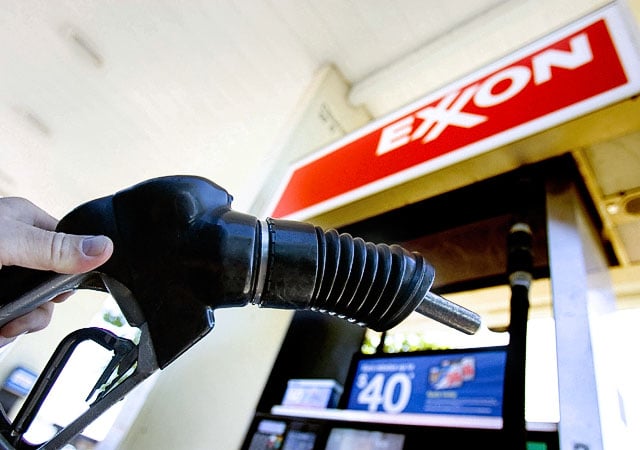Energy
Conoco, Exxon Report Reserves Replacement for 2010 (COP, XOM, CVX, BP, RDS-A)
Published:
Last Updated:
 The oil majors will be reporting reserves replacement figures for 2010 over the next few weeks as they prepare their 10-Ks for the SEC. ConocoPhillips Corp. (NYSE: COP) reported replacement ratios at the end of January and Exxon Mobil Corp. (NYSE: XOM) reported its ratios today. Reports from Chevron Corp. (NYSE: CVX), BP plc (NYSE: BP), and Royal Dutch Shell plc (NYSE: RDS-A) are still to come.
The oil majors will be reporting reserves replacement figures for 2010 over the next few weeks as they prepare their 10-Ks for the SEC. ConocoPhillips Corp. (NYSE: COP) reported replacement ratios at the end of January and Exxon Mobil Corp. (NYSE: XOM) reported its ratios today. Reports from Chevron Corp. (NYSE: CVX), BP plc (NYSE: BP), and Royal Dutch Shell plc (NYSE: RDS-A) are still to come.
Conoco reported that it added net proved reserves of 920 million barrels of oil equivalent (BOE) in 2010, an amount equal to 138% of the company’s production. Exxon reported net additions of 3.5 billion BOE, equal to 209% of 2010 production. This all sounds terrific until you dig a little deeper into what counts as proved reserves these days. The short version is that consumers can have all the oil they want provided they’re willing to pay any price for it.
When a company calculates its reserves it is allowed to count barrels that are not what most of us think of as oil. Barrels of oil equivalent includes natural gas, unconventional gas (e.g., coal-bed methane), natural gas liquids (NGLs), condensates, and oil sands deposits as well as conventional crude. The industry, and the government agencies that regulate the industry, now lump together conventional oil, NGLs, condensates, and oil sands resources as “liquids.”
In its 2009 10-K, Exxon had this to say about liquids:
“Liquid fuels provide the largest share of energy supply today due to their availability, affordability and ease of transport. By 2030, global demand for liquids is expected to grow to approximately 104 million barrels of oil-equivalent per day or close to 25 percent more than in 2005. Global demand for liquid fuels will be met by a wide variety of sources. Conventional non-OPEC crude and condensate production is expected to remain relatively flat through 2030. However, growth is expected from a number of supply sources, including biofuels, oil sands and natural gas liquids, as well as crude oil from OPEC countries. While the world’s resource base is sufficient to meet projected demand, access to resources and timely investments will remain critical to meeting
global needs with reliable, affordable supplies.”
What Exxon is saying is that what most of us think of as crude oil will increasingly be comprised of non-conventional sources like biofuels (e.g., ethanol), oil sands, and NGLs. So who cares, it’s all oil, right?
Yes, all these new sources can be refined and pumped into a car’s gas tank, and power the car down the road. But at what cost?
As reserves replacements comes to depend more on non-conventional sources, the cost of developing those resources rises. By allowing the companies to conflate all these sources into the single category of “liquids,” regulators and agencies like the US Energy Information Administration and the International Energy Agency tacitly accept that consumers will be willing to pay whatever it costs to get the liquid fuel that they need.
In a normal economic environment, where GDP is growing at a decent pace, this would not present a big problem. However, in the current global economy pump price increases eat away at GDP growth. Perhaps worse is that an oil company’s profitability hides the fact that growing liquid fuel demand is being met with unconventional resources that require a larger investment of energy and money to extract the resource. This situation can’t last forever, and, like all things that can’t last forever, it won’t.
Paul Ausick
Take the quiz below to get matched with a financial advisor today.
Each advisor has been vetted by SmartAsset and is held to a fiduciary standard to act in your best interests.
Here’s how it works:
1. Answer SmartAsset advisor match quiz
2. Review your pre-screened matches at your leisure. Check out the advisors’ profiles.
3. Speak with advisors at no cost to you. Have an introductory call on the phone or introduction in person and choose whom to work with in the future
Take the retirement quiz right here.
Thank you for reading! Have some feedback for us?
Contact the 24/7 Wall St. editorial team.